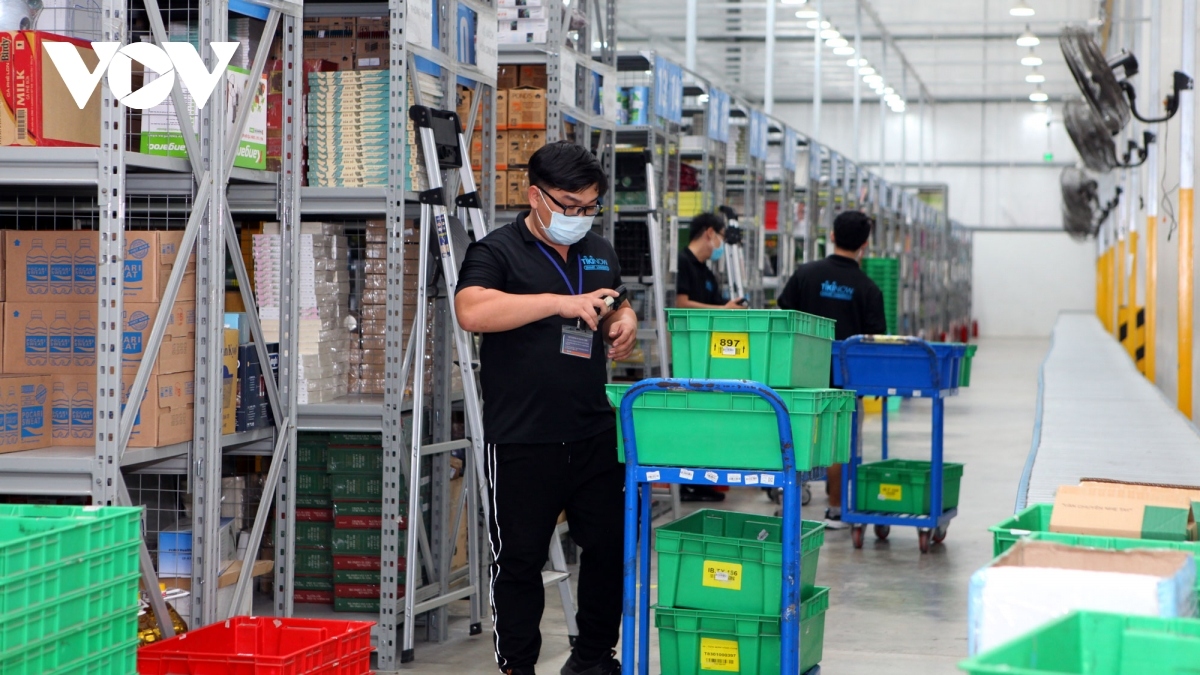E-commerce in HCM City enjoys strong growth amid COVID-19
VOV.VN - Many production, business, and service sectors based in Ho Chi Minh City have witnessed a sharp drop in revenue due to the negative impact of the COVID-19 pandemic, although e-commerce remains a bright spot after recording strong growth, with this trend expected to continue moving forward.

Currently, Ho Chi Minh City is home to 567 e-commerce floors, more than 20,680 sales websites, and 134 applications providing commercial services. Despite the prolonged impact of the COVID-19 pandemic affecting the circulation of goods, many e-commerce floors and sales websites still enjoyed high growth this year.
For example, Tiki e-commerce platform was still able to maintain double-digit growth, while its fresh food delivery service alone set a record with an increase of 20 times over the same period from last year.
The number of members using the fast delivery service "TikiNOW 2 hours" also trebled, while fresh food products increased several times over. As for the Lazada e-commerce platform, the number of orders also more than doubled, especially as fresh food orders increased by 17 times over last year’s corresponding period.
During the duration of the pandemic, many e-commerce floors developed an array of new features, including supply and fast delivery services, while simultaneously connecting and helping farmers and producers to bring fresh agricultural products items to consumers.
Most notably, direct connection models with farmers have contributed to cutting out the intermediary steps, supporting farmers in optimising costs, and helping people to purchase products at better prices.
“Lazada has intensified sales channels through price stabilization programmes and coordinated with other units in order to bring essential food products such as fruit and vegetables local consumers via a digital platform,” said Luu Hanh, communications director of Lazada.
As a means of meeting the rapid growth of e-commerce in the future, many businesses are in the process of investing in logistics. As a result, Lazada continues to upgrade its logistics infrastructure system, while TiKi is investing in developing many cold storages in the southern city in order to create better connectivity and increase the use robots to both sort and store goods in warehouses.
Along with added convenience, e-commerce services in the city over recent times reveal limitations as goods purchased through e-commerce channels do not guarantee quality and origin.
As a way of protecting consumer interests, the municipal Department of Industry and Trade of Ho Chi Minh City is in the process of enhancing the connection, thereby making it easier for local businesses to sell their products on reputable e-commerce platforms. The department has also stepped up co-ordination with competent agencies to deal with businesses that fail to guarantee quality and the origin of their products.
Amid the COVID-19 pandemic, many residents in Ho Chi Minh City have formed a new consumption habit in the form of online shopping, which is considered an inevitable development trend. However, in order to effectively promote e-commerce platforms, competent agencies must adopt stricter management mechanisms and policies, thereby creating a competent sales channel for producers and suppliers of high-quality goods, whilst also protecting consumer interests.
